#di Roberto Alagna
Explore tagged Tumblr posts
Text
Opera on YouTube
I've shared links to complete opera performances before, but I love to share them, so I thought I'd make a few masterposts.
These list are by no means the only complete filmed performances of these operas on YouTube, but I decided that ten links for each opera was enough for now.
By the way, some of the subtitles are just a part of the video, while others require you to click CC to see them.
Die Zauberflöte (The Magic Flute)
Hamburg Philharmonic State Opera, 1971 (Nicolai Gedda, Edith Mathis, William Workman, Christina Deutekom, Hans Sotin; conducted by Horst Stein; English subtitles)
Ingmar Bergman film, 1975 (Josef Köstlinger, Irma Urrila, Håkan Hagegård, Birgit Nordin, Ulrik Cold; conducted by Eric Ericson; sung in Swedish; English subtitles)
Salzburg Festival, 1982 (Peter Schreier, Ileana Cotrubas, Christian Bösch, Edita Gruberova, Martti Talvela; conducted by James Levine; Japanese subtitles)
Bavarian State Opera, 1983 (Francisco Araiza, Lucia Popp, Wolfgang Brendel, Edita Gruberova, Kurt Moll; conducted by Wolfgang Sawallisch; English subtitles)
Metropolitan Opera, 1991 (Francisco Araiza, Kathleen Battle, Manfred Hemm, Luciana Serra, Kurt Moll; conducted by James Levine; English subtitles)
Paris Opera, 2001 (Piotr Beczala, Dorothea Röschmann, Detlef Roth, Desirée Rancatore, Matti Salminen; conducted by Ivan Fischer; no subtitles)
Royal Opera House, Covent Garden, 2003 (Will Hartman, Dorothea Röschmann, Simon Keenlyside, Diana Damrau, Franz Josef Selig; conducted by Colin Davis; no subtitles) – Act I, Act II
La Monnaie, Brussels, 2005 (Topi Lehtipuu, Sophie Karthäuser, Stephan Loger, Ana Camelia Stefanescu, Harry Peeters; conducted by René Jacobs; French subtitles)
Kenneth Branagh film, 2006 (Joseph Kaiser, Amy Carson, Benjamin Jay Davis, Lyubov Petrova, René Pape; conducted by James Conlon; sung in English)
San Francisco Opera, 2010 (Piotr Beczala, Dina Kuznetsoca, Christopher Maltman, Erika Miklósa, Georg Zeppenfeld; conducted by Donald Runnicles; English subtitles)
La Traviata
Mario Lanfrachi studio film, 1968 (Anna Moffo, Franco Bonisolli, Gino Bechi; conducted by Giuseppe Patané; English subtitles)
Glyndebourne Festival Opera, 1987 (Marie McLaughlin, Walter MacNeil, Brent Ellis; conducted by Bernard Haitink; Italian and Portuguese subtitles)
Teatro alla Scala, 1992 (Tiziana Fabbricini, Roberto Alagna, Paolo Coni; conducted by Riccardo Muti; English subtitles)
Royal Opera House, Covent Garden, 1994 (Angela Gheorghiu, Frank Lopardo, Leo Nucci; conducted by Georg Solti; Spanish subtitles)
Teatro Giuseppe Verdi, 2003 (Stefania Bonfadelli, Scott Piper, Renato Bruson; conducted by Plácido Domingo; Spanish subtitles)
Salzburg Festival, 2005 (Anna Netrebko, Rolando Villazón, Thomas Hampson; conducted by Carlo Rizzi; no subtitles)
Los Angeles Opera, 2006 (Renée Fleming, Rolando Villazón, Renato Bruson; conducted by James Conlon; English subtitles)
Opera Festival St. Margarethen, 2008 (Kristiane Kaiser, Jean-Francois Borras, Georg Tichy; conducted by Ernst Märzendorfer; English subtitles)
Teatro Real di Madrid, 2015 (Ermonela Jaho, Francesco Demuro, Juan Jesús Rodríguez; conducted by Renato Palumbo; English subtitles)
Teatro Massimo, 2023 (Nino Machiadze, Saimir Pirgu, Roberto Frontali; conducted by Carlo Goldstein; no subtitles)
Carmen
Herbert von Karajan studio film, 1967 (Grace Bumbry, Jon Vickers; conducted by Herbert von Karajan; English subtitles)
Vienna State Opera, 1978 (Elena Obraztsova, Plácido Domingo; conducted by Carlos Kleiber; English Subtitles)
Francisco Rosi film, 1982 (Julia Migenes, Plácido Domingo; conducted by Lorin Maazel; English subtitles)
Metropolitan Opera, 1987 (Agnes Baltsa, José Carreras; conducted by James Levine; English subtitles)
London Earls Court Arena, 1989 (Maria Ewing, Jacque Trussel; conducted by Jaques Delacote; English subtitles)
Royal Opera House, Covent Garden, 1991 (Maria Ewing, Luis Lima; conducted by Zubin Mehta; English subtitles) – Acts I and II, Acts III and IV
Arena di Verona, 2003 (Marina Domashenko, Marco Berti; conducted by Alain Lombard; Italian subtitles)
Royal Opera House, Covent Garden, 2006 (Anna Caterina Antonacci, Jonas Kaufmann; conducted by Antonio Pappano; English subtitles) – Acts I and II, Acts III and IV
Metropolitan Opera, 2010 (Elina Garanca, Roberto Alagna; conducted by Yannick Nézet-Séguin; English subtitles) – Acts I and II, Acts III and IV
Opéra-Comique, 2023 (Gaëlle Arquez, Frédéric Antoun; conducted by Louis Langrée; English subtitles)
La Bohéme
Franco Zeffirelli studio film, 1965 (Mirella Freni, Gianni Raimondi; conducted by Herbert von Karajan; English subtitles)
Metropolitan Opera, 1977 (Renata Scotto, Luciano Pavarotti; conducted by James Levine; no subtitles)
Teatro alla Scala, 1979 (Ileana Cotrubas, Luciano Pavarotti; conducted by Carlos Kleiber; no subtitles)
Opera Australia, 1993 (Cheryl Barker, David Hobson; conducted by Julian Smith; Brazilian Portuguese subtitles)
Teatro Regio di Torino, 1996 (Mirella Freni, Luciano Pavarotti; conducted by Daniel Oren; Italian subtitles)
Teatro alla Scala, 2003 (Cristina Gallardo-Domâs, Marcelo Alvarez; conducted by Bruno Bartoletti; Spanish subtitles)
Zürich Opera House, 2005 (Cristina Gallardo-Domâs, Marcello Giordani; conducted by Franz Welser-Möst; no subtitles)
Robert Dornhelm film, 2009 (Anna Netrebko, Rolando Villazón; conducted by Bertrand de Billy; no subtitles)
Opera Australia, 2011 (Takesha Meshé Kizart, Ji-Min Park; Shao-Chia Lü; no subtitles)
Sigulda Opera Festival, 2022 (Maija Kovalevska, Mihail Mihaylov; conducted by Vladimir Kiradjiev; English subtitles)
#opera#youtube#complete performances#die zauberflöte#the magic flute#la traviata#carmen#la boheme#wolfgang amadeus mozart#giuseppe verdi#georges bizet#giacomo puccini
32 notes
·
View notes
Text

"Go Italy! Young Artists", il 18/11
"Non tutti possono diventare dei grandi artisti ma un grande artista può celarsi in chiunque" (Ego, dal film Ratatouille). Questa citazione coglie l'essenza di "Go Italy! Young Artists", il format tv ideato da Ditutto e prodotto da Wd Editore srls, che ha come obbiettivo, oltre a quello di far conoscere la carriera di giovani artisti emergenti, anche quello di svelare cosa c'è dietro il loro lavoro, mettendo in risalto la loro creatività fatta spesso di passione, emozioni e vita vissuta. Alla conduzione del talk show il deejay-producer Lele Procida, che durante ogni puntata intervisterà quattro artisti: «Saranno in tutto sedici i nuovi talenti della musica italiana in questa nuova stagione e anche quest'anno ci saranno delle belle sorprese, abbiamo conosciuto personaggi di cui sentiremo presto parlare, con proposte musicali davvero interessanti!».
Questi i sedici artisti che saranno ospiti sul palcoscenico virtuale di "Go Italy! Young Artists": nella prima puntata Frencys (Roma), Martina Marchetti (Bergamo), Max De Lorenzis (Brindisi) e Raesta (Roma); nella seconda puntata Giulia Boria (Cattolica), Claro (New York), Monterosso (Siracusa) e Alfiero (Terracina); nella terza puntata Daevid (Verona), Natalia Moskal (Milano), Warco (Marsala) e Sinedades (Firenze); nella quarta ed ultima puntata Eric Mormile (Napoli), Neidia (Milano),Mariateresa (Pantelleria) e Alice Alagna (Roma)
Ospite fisso del programma il noto musicista e produttore internazionale Roberto Costa, al quale abbiamo chiesto un parere sugli artisti di questa terza stagione: «Gli artisti mi son sembrati molto consapevoli e motivati. Mi sembra che abbiano le idee piuttosto chiare. Inoltre mi ha stupito il livello di preparazione, tutti hanno un approccio quasi "scientifico" con la musica, studiano molto».
"Go Italy! Young Artists" sarà trasmesso con cadenza settimanale da lunedì 18 novembre su Ditutto Italia (facebook), Ditutto Channel Tv (youtube) e sul web network DSP (l'elenco dei partners del web network è visionabile su ditutto.it) e da martedì 19 novembre sull'emittente televisiva Mediterranea Tv (SmartTv canale 268 o App, Puglia canale 89 DTT, web mediterraneatv.it).
Official Partners Mediterranea Tv, Breight Film, Silver Music Radio, Music Records Italy, AllaDiscoteca, Radio Albatro. Distribuzione ai medialtc - lorenzo tiezzi comunicazione. Distribuzione televisivaFox Production Television Italia. La terza stagione di "Go Italy! "Go Italy! Young Artists" è presentata da Colmac Italia.
Lele Procida, da 48 anni deejay e speaker radiofonico, ha praticamente visto nascere la musica da discoteca di cui è un profondo conoscitore. È anche una notissima voce di spot pubblicitari e documentari in onda sulle più importanti reti nazionali e locali.
Roberto Costa autore, editore di grandi artisti italiani degli anni cinquanta e sessanta come Giorgio Consolini, Nilla Pizzi, Milva, Luciano Tajoli, è stato bassista turnista, fonico professionista e arrangiatore per tanti artisti nazionali come Lucio Dalla (per cui scrive la musica di "Se io fossi un angelo"), Ivan Graziani, Ron, Luca Carboni, Mina, Gianni Morandi, Luciano Pavarotti e altri, nonché autore e produttore di musiche per spettacoli teatrali e televisivi su circuito nazionale.
0 notes
Text

"Go Italy! Young Artists", il 18/11
"Non tutti possono diventare dei grandi artisti ma un grande artista può celarsi in chiunque" (Ego, dal film Ratatouille). Questa citazione coglie l'essenza di "Go Italy! Young Artists", il format tv ideato da Ditutto e prodotto da Wd Editore srls, che ha come obbiettivo, oltre a quello di far conoscere la carriera di giovani artisti emergenti, anche quello di svelare cosa c'è dietro il loro lavoro, mettendo in risalto la loro creatività fatta spesso di passione, emozioni e vita vissuta. Alla conduzione del talk show il deejay-producer Lele Procida, che durante ogni puntata intervisterà quattro artisti: «Saranno in tutto sedici i nuovi talenti della musica italiana in questa nuova stagione e anche quest'anno ci saranno delle belle sorprese, abbiamo conosciuto personaggi di cui sentiremo presto parlare, con proposte musicali davvero interessanti!».
Questi i sedici artisti che saranno ospiti sul palcoscenico virtuale di "Go Italy! Young Artists": nella prima puntata Frencys (Roma), Martina Marchetti (Bergamo), Max De Lorenzis (Brindisi) e Raesta (Roma); nella seconda puntata Giulia Boria (Cattolica), Claro (New York), Monterosso (Siracusa) e Alfiero (Terracina); nella terza puntata Daevid (Verona), Natalia Moskal (Milano), Warco (Marsala) e Sinedades (Firenze); nella quarta ed ultima puntata Eric Mormile (Napoli), Neidia (Milano),Mariateresa (Pantelleria) e Alice Alagna (Roma)
Ospite fisso del programma il noto musicista e produttore internazionale Roberto Costa, al quale abbiamo chiesto un parere sugli artisti di questa terza stagione: «Gli artisti mi son sembrati molto consapevoli e motivati. Mi sembra che abbiano le idee piuttosto chiare. Inoltre mi ha stupito il livello di preparazione, tutti hanno un approccio quasi "scientifico" con la musica, studiano molto».
"Go Italy! Young Artists" sarà trasmesso con cadenza settimanale da lunedì 18 novembre su Ditutto Italia (facebook), Ditutto Channel Tv (youtube) e sul web network DSP (l'elenco dei partners del web network è visionabile su ditutto.it) e da martedì 19 novembre sull'emittente televisiva Mediterranea Tv (SmartTv canale 268 o App, Puglia canale 89 DTT, web mediterraneatv.it).
Official Partners Mediterranea Tv, Breight Film, Silver Music Radio, Music Records Italy, AllaDiscoteca, Radio Albatro. Distribuzione ai medialtc - lorenzo tiezzi comunicazione. Distribuzione televisivaFox Production Television Italia. La terza stagione di "Go Italy! "Go Italy! Young Artists" è presentata da Colmac Italia.
Lele Procida, da 48 anni deejay e speaker radiofonico, ha praticamente visto nascere la musica da discoteca di cui è un profondo conoscitore. È anche una notissima voce di spot pubblicitari e documentari in onda sulle più importanti reti nazionali e locali.
Roberto Costa autore, editore di grandi artisti italiani degli anni cinquanta e sessanta come Giorgio Consolini, Nilla Pizzi, Milva, Luciano Tajoli, è stato bassista turnista, fonico professionista e arrangiatore per tanti artisti nazionali come Lucio Dalla (per cui scrive la musica di "Se io fossi un angelo"), Ivan Graziani, Ron, Luca Carboni, Mina, Gianni Morandi, Luciano Pavarotti e altri, nonché autore e produttore di musiche per spettacoli teatrali e televisivi su circuito nazionale.
0 notes
Text

"Go Italy! Young Artists", il 18 novembre 2024
"Non tutti possono diventare dei grandi artisti ma un grande artista può celarsi in chiunque" (Ego, dal film Ratatouille). Questa citazione coglie l'essenza di "Go Italy! Young Artists", il format tv ideato da Ditutto e prodotto da Wd Editore srls, che ha come obbiettivo, oltre a quello di far conoscere la carriera di giovani artisti emergenti, anche quello di svelare cosa c'è dietro il loro lavoro, mettendo in risalto la loro creatività fatta spesso di passione, emozioni e vita vissuta. Alla conduzione del talk show il deejay-producer Lele Procida, che durante ogni puntata intervisterà quattro artisti: «Saranno in tutto sedici i nuovi talenti della musica italiana in questa nuova stagione e anche quest'anno ci saranno delle belle sorprese, abbiamo conosciuto personaggi di cui sentiremo presto parlare, con proposte musicali davvero interessanti!».
Questi i sedici artisti che saranno ospiti sul palcoscenico virtuale di "Go Italy! Young Artists": nella prima puntata Frencys (Roma), Martina Marchetti (Bergamo), Max De Lorenzis (Brindisi) e Raesta (Roma); nella seconda puntata Giulia Boria (Cattolica), Claro (New York), Monterosso (Siracusa) e Alfiero (Terracina); nella terza puntata Daevid (Verona), Natalia Moskal (Milano), Warco (Marsala) e Sinedades (Firenze); nella quarta ed ultima puntata Eric Mormile (Napoli), Neidia (Milano),Mariateresa (Pantelleria) e Alice Alagna (Roma)
Ospite fisso del programma il noto musicista e produttore internazionale Roberto Costa, al quale abbiamo chiesto un parere sugli artisti di questa terza stagione: «Gli artisti mi son sembrati molto consapevoli e motivati. Mi sembra che abbiano le idee piuttosto chiare. Inoltre mi ha stupito il livello di preparazione, tutti hanno un approccio quasi "scientifico" con la musica, studiano molto».
"Go Italy! Young Artists" sarà trasmesso con cadenza settimanale da lunedì 18 novembre su Ditutto Italia (facebook), Ditutto Channel Tv (youtube) e sul web network DSP (l'elenco dei partners del web network è visionabile su ditutto.it) e da martedì 19 novembre sull'emittente televisiva Mediterranea Tv (SmartTv canale 268 o App, Puglia canale 89 DTT, web mediterraneatv.it).
Official Partners Mediterranea Tv, Breight Film, Silver Music Radio, Music Records Italy, AllaDiscoteca, Radio Albatro. Distribuzione ai medialtc - lorenzo tiezzi comunicazione. Distribuzione televisivaFox Production Television Italia. La terza stagione di "Go Italy! "Go Italy! Young Artists" è presentata da Colmac Italia.
Lele Procida, da 48 anni deejay e speaker radiofonico, ha praticamente visto nascere la musica da discoteca di cui è un profondo conoscitore. È anche una notissima voce di spot pubblicitari e documentari in onda sulle più importanti reti nazionali e locali.
Roberto Costa autore, editore di grandi artisti italiani degli anni cinquanta e sessanta come Giorgio Consolini, Nilla Pizzi, Milva, Luciano Tajoli, è stato bassista turnista, fonico professionista e arrangiatore per tanti artisti nazionali come Lucio Dalla (per cui scrive la musica di "Se io fossi un angelo"), Ivan Graziani, Ron, Luca Carboni, Mina, Gianni Morandi, Luciano Pavarotti e altri, nonché autore e produttore di musiche per spettacoli teatrali e televisivi su circuito nazionale.
0 notes
Text
Le Villi (Puccini) - Festival Euro Mediterraneo 2004
Linda ópera completa com legenda em português: vídeo; legenda.
A primeira ópera composta por Puccini, Le Villi (As Fadas) é uma ópera-ballet de 1884 baseada na lenda de Vila da Europa Central, também usada no balé Giselle.
Libreto inglês
Informações e libreto it-pt, TMRJ 2024
Ária "Non ti scordar di me"
Ária "Torna ai felici di": Jonas Kaufmann, Plácido Domingo, Jose Cura, Thiago Arancam, Roberto Alagna, Jonathan Tetelman, Vittorio Grigolo.
Personagens principais: - Guglielmo, chefe dos guardas - Anna, sua filha - Roberto, um jovem
Sinopse: Floresta Negra, provavelmente na Idade Média.
Ato 1 - Primavera A família e os convidados dançam em uma celebração do noivado de Roberto e Anna. Roberto precisa sair antes da cerimônia para receber uma herança, e Anna se preocupa com a possibilidade de nunca mais vê-lo (Aria: Se come voi piccina). Roberto conforta Anna, dizendo-lhe que tudo ficará bem e que eles se casarão quando ele voltar de Mogúncia. Anna conta a Roberto sobre seus sonhos de que ele morreria, mas Roberto diz a Anna que ela não deve se preocupar com o fracasso de seu amor e que ela pode duvidar de seu Deus, mas não do amor dele por ela. A multidão retorna e Anna ainda está preocupada com a partida de Roberto. Roberto então pede a Guglielmo, pai de Anna, que os abençoe antes de sua viagem e Roberto parte para Mogúncia.
Intermezzo Roberto se encanta com uma sereia e se esquece de Anna. Anna fica esperando durante o verão e o outono e, no inverno, morre em sua ausência. A lenda das fadas (Le Villi) é então explicada. Quando uma mulher morre de coração partido, as fadas obrigam o amante a dançar até a morte.
Ato 2 - Inverno O pai de Anna, Guglielmo, considera Roberto responsável pela morte de Anna e chama as Villi para se vingarem de Roberto (Aria: Anima santa della figlia mia). As Villi invocam o fantasma de Anna e atraem Roberto para a floresta. Roberto, agora sem dinheiro e abandonado pela sedutora, retorna quando recebe a notícia da morte de Anna. Ele espera ser perdoado, mas as Villi o perseguem enquanto ele lamenta a perda dos dias de sua juventude (Aria: Torna ai felici dì). Roberto, então, encontra a última flor que restou viva no inverno e tenta encontrar esperança de que Anna viva, mas é repelido pelas Villi quando tenta bater à porta da casa de Guglielmo. Roberto tenta então orar por perdão, mas descobre que não pode fazê-lo por causa da maldição lançada sobre ele pelas Villi. Enquanto Roberto amaldiçoa seu destino, Anna aparece para ele e lhe conta sobre o sofrimento que teve de suportar. Roberto implora por perdão e também sente a dor de Anna arder em seu coração. Mas Roberto não é perdoado e Anna chama as Villi, que amaldiçoam Roberto com gritos de "traidor". Lá, as Villi e Anna dançam com Roberto até que ele morre de exaustão aos pés de Anna.
youtube
A ária "Torna ai felici di" de Le Villi deu premiações ao Brasil no famoso campeonato de canto lírico Operalia, em 2008.

pintura Le Villi, de 1906

0 notes
Text
Gérard Depardieu nella bufera: il mondo della cultura scende in campo in sua difesa, ma scoppia la polemica
Tgcom24 Chi è sceso in campo a favore di Depardieu Tra le personalità del mondo dello spettacolo francese scese in campo al fianco di Depardieu ci sono anche il regista Bertrand Blier, l’attrice Nathalie Bayee e gli attori Jacques Weber, Pierre Richard o Gérard Darmon, ma anche i cantanti Roberto Alagna, Arielle Dombasle e Jacques Dutronc. Lo riporta la rete France 24 segnalando che la���

View On WordPress
0 notes
Photo








there aren’t enough gifs in the world to capture the gayness of this moment, but I can try.
#Don Carlo#Don Carlos#Rodrigo Maquis di Posa#Carlo/Rodrigo#Dio che nell'alma infondere#Simon Keenlyside#Roberto Alagna#gay opera#super gay opera#opera#opera tag#met opera streams#opera gifs#carlos gifs
73 notes
·
View notes
Text

it’s ALWAYS a good time to see this one back on the Met streams
#opera#opera tag#Don Carlos#Don Carlo#happy Pride Month to them specifically#Operablr Pride Month#Verdi#Giuseppe Verdi#Rodrigo Marquis di Posa#Carlo/Rodrigo#Don Carlo/Rodrigo Marquis di Posa#Roberto Alagna#Sir Simon Keenlyside#Met 2010 Don Carlo my beloved
15 notes
·
View notes
Text
Opera on YouTube 6
Pagliacci
Franco Enriques studio film, 1954 (Franco Corelli, Mafalda Micheluzzi, Tito Gobbi; conducted by Alfredo Simonetto; no subtitles)
Tokyo Bunka Kaikan, 1961 (Mario del Monaco, Gabriella Tucci, Aldo Protti; conducted by Giuseppe Morelli; Japanese subtitles)
Herbert von Karajan studio film, 1968 (Jon Vickers, Raina Kabaivanska, Peter Glossop; conducted by Herbert von Karajan; no subtitles)
Franco Zeffirelli film, 1983 (Plácido Domingo, Teresa Stratas, Juan Pons; conducted by Georges Prêtre; English subtitles) – Part I, Part II, Part III, Part IV, Part V, Part VI
Metropolitan Opera, 1994 (Luciano Pavarotti, Teresa Stratas, Juan Pons; conducted by James Levine; Spanish subtitles)
Ravena Festival, 1998 (Plácido Domingo, Svetla Vassileva, Juan Pons; conducted by Riccardo Muti; Italian subtitles)
Zürich Opera House, 2009 (José Cura, Fiorenza Cedolins, Carlo Guelfi; conducted by Stefano Ranzani; no subtitles)
Chorégies d'Orange, 2009 (Roberto Alagna, Inva Mula, Seng-Hyoun Ko; conducted by Georges Prêtre; French subtitles)
Gran Teatre del Liceu, 2011 (Marcello Giordani, Angeles Blancas, Vittorio Vitelli; conducted by Daniele Callegari; English subtitles – ignore the silly references to Norse mythology and aliens that the translator threw in, they're not in the actual libretto)
Latvian National Opera, 2019 (Sergei Polyakov, Tatiana Trenogina, Vladislav Sulimsky; conducted by Jānis Liepiņš; no subtitles)
Die Entführung aus dem Serail
Dresden State Opera, 1977 (Armin Ude, Carolyn Smith-Meyer, Barbara Sternberer, Rolf Tomaszewski; conducted by Peter Gülke; no subtitles)
Bavarian State Opera, 1980 (Francisco Araiza, Edita Gruberova, Reri Grist, Martti Talvela; conducted by Karl Böhm; English subtitles)
Royal Opera House, Covent Garden, 1988 (Deon van der Walt, Inga Nielson, Lillian Watson, Kurt Moll; conducted by Georg Solti; English subtitles)
Salzburg Festival, 1989 (Deon van der Walt, Inga Nielson, Lillian Watson, Kurt Rydl; conducted by Horst Stein; no subtitles)
Théâtre du Châtelet, 1991 (Stanford Olsen, Luba Orgonasova, Cyndia Sieden, Cornelius Hauptmann; conducted by John Eliot Gardiner; French subtitles)
Vienna State Opera, 1989 (Kurt Streit, Aga Winska, Elzbieta Szmytka, Artur Korn; conducted by Nicolaus Harnoncourt; Hungarian subtitles) – Act I, Act II
Teatro della Pergola, 2002 (Rainer Trost, Eva Mei, Patrizia Ciofi, Kurt Rydl; conducted by Zubin Mehta; Spanish subtitles)
Gran Teatre del Liceu, 2012 (Christoph Strehl, Diana Damrau, Olga Peretyatko, Franz-Josef Selig; conducted by Ivor Bolton; Catalan subtitles)
Bankhead Theatre, 2018 (David Walton, Alexandra Batsios, Elena Galvan, Kevin Langan; conducted by Alex Katsman; English subtitles)
Theatro São Pedro, 2023 (Daniel Umbelino, Ludmilla Bauerfeldt, Ana Carolina Coutinho, Luiz-Ottavio Faria; conducted by Cláudio Cruz; Brazilian Portuguese subtitles)
Un Ballo in Maschera
Tokyo Bunka Kaikan, 1967 (Carlo Bergonzi, Antonietta Stella, Mario Zanassi; conducted by Oliviero di Fabritiis; Spanish subtitles)
Royal Opera House, Covent Garden, 1975 (Plácido Domingo, Katia Ricciarelli, Piero Cappuccilli; conducted by Claudio Abbado, English subtitles)
Teatro alla Scala, 1978 (Luciano Pavarotti, Mara Zampieri, Piero Cappuccilli; conducted by Claudio Abbado; Italian subtitles)
Metropolitan Opera, 1980 (Luciano Pavarotti, Katia Ricciarelli, Louis Quilico; conducted by Giuseppe Patané; no subtitles)
Royal Swedish Opera, 1986 (Nicolai Gedda, Siv Wennberg, Carl Johan Falkman; conducted by Eri Klas; sung in Swedish; Swedish subtitles)
Salzburg Festival, 1990 (Plácido Domingo, Josephine Barstow, Leo Nucci; conducted by Georg Solti; Spanish subtitles)
Leipzig Opera House, 2006 (Massimiliano Pisapia, Chiara Taigi, Franco Vassallo; conducted by Riccardo Chailly; English subtitles) – Part I, Part II
Teatro Regio di Torino, 2012 (Gregory Kunde, Oksana Dyka, Gabriele Viviani; conducted by Renato Palumbo; no subtitles) – Part I, Part II
Chorégies d'Orange, 2013 (Ramón Vargas, Kristin Lewis, Lucio Gallo; conducted by Alain Altinoglu; French subtitles)
Arena di Verona, 2014 (Francesco Meli, Hui He, Luca Salsi; conducted by Andrea Battistoni; no subtitles)
Cavalleria Rusticana
Giorgio Strehler studio film, 1968 (Gianfranco Cecchele, Fiorenza Cossotto; conducted by Herbert von Karajan; no subtitles)
Metropolitan Opera, 1974 (Franco Tagliavini, Grace Bumbry; conducted by John Nelson; no subtitles)
Franco Zeffirelli film, 1983 (Plácido Domingo, Elena Obraztsova; conducted by Georges Prêtre; no subtitles)
Ravenna Festival, 1996 (José Cura, Waltraud Meier; conducted by Riccardo Muti; Italian subtitles)
Ópera de Bellas Artes, 2008 (Alfredo Portilla, Violeta Dávalos; conducted by Marco Zambelli; Spanish subtitles)
Zürich Opera, 2009 (José Cura, Paoletta Marrocu; conducted by Stefano Ranzani; no subtitles)
Chorégies d'Orange, 2009 (Roberto Alagna, Beatrice Uria-Monzon; conducted by Georges Prêtre; French subtitles)
Gran Teatre del Liceu, 2011 (Marcello Giordani, Ildiko Komlosi; conducted by Daniele Gallegari; Spanish subtitles)
Mikhailovsky Theatre, St. Petersburg, 2012 (Fyodor Ataskevich, Iréne Theorin; conducted by Daniele Rustioni; English subtitles)
Vienna State Opera, 2019 (Younghoon Lee, Elina Garanča; conducted by Graeme Jenkins; English subtitles)
#opera#youtube#complete performances#pagliacci#die entführung aus dem serail#the abduction from the seraglio#un ballo in maschera#cavalleria rusticana#ruggero leoncavallo#wolfgang amadeus mozart#giuseppe verdi#pietro mascagni
9 notes
·
View notes
Text
Met opera asks day 6
Thank you again @opera-my-beloved!! the questions just keep getting better and better! That being said this post is atrociously long :’) FAIR WARNING
Any favorite weird/funny lyrics? Bartolo, Basilio, and Marcellina’s in the Act II Finale of Nozze (musically more than anything)... oh, of course “pa..Pa...PA!” (ad infinitum) in Papageno/Papagena’s duet... Figaro’s “Largo al Factotum”... and I completely agree with @revedebeatrice and was actually screaming over that particular “---mètre” line in Hoffman from the eye trio today (idk “thermomètre” in particular just really got me)
Also hmmmm sometimes I laugh at the poetic lines in Trovatore (I was going to say only Manrico, especially during the Act II finale - “ The waves of the rivers have an irresistible force!” okay Manrico -- but then again he has his Troubadour songs too... and then Leonora gets almost - ALMOST poetic in her Act IV aria... and actually di Luna is more poetic than her, I mean, Il Balen??) so anyways I find those funny because. Haha it just is. The overly “poetic” parts just heighten the ridiculousness of the melodrama; so many other more serious operas have such less dramatic librettos and I find it funny.
What are some opera songs that make you lose your mind? Finale of Onegin (I wrote an essay about it remember hehe?) but also Olga and Tatyana’s Duet and Skazhi Kotoraya Tatyana (my beloved) and Uvi, Somnenya Net/Puskai Pogibnu Ya, and, and :) Act II finale of Nozze Act I and II Preludes of Un Ballo in Maschera (and the Act III Quintet) Un Dì Felice/Ebben..? from La Traviata Violin Aria from Les Contes d’Hoffman
So many, I have to stop there though.
Are there any Met interview moments that live rent-free in your mind? Definitely Roberto Alagna in Don Carlo (never forget that somersault!!!) and Renée interviewing the cast of the 2011 Trovatore (Sondra Radvanovsky and Marcelo Álvarez being so CUTE) also when Dmitri Hvorostovsky a) called Sondra Radvanovsky “rock and roll” in the Ballo interview, because she is, and b) when when he held ground for Onegin when Beverly Sills interviewed him with Renée Fleming by saying "I would really disagree with you, because if [Onegin] was…cold and [aloof], Tatyana would never fall in love with me. Obviously I have quite a great bunch of qualities…”
What’s an opera production that you positively rant about for an hour and a production that you could angry rant about for an hour? Positive: 2007 Carsen Onegin (I have matured though, and seen many different Onegins now, so I understand why others don’t like the set or production. Completely valid. But with That Cast, they could just sing the music in a blackbox theatre and I would say it’s the greatest production ever so. Also, those leaves ARE magic)
Negative: I really don’t have an answer for this one! Only anger/confusion for why certain productions WEREN’T filmed live in HD
Are there any weirdly specific moments from a stream/production that you love? I second @sweatershowgirl, that heel kick in Faust (2011) is glorious (so is all the drinking form beakers, haha #toxic). So many in the 1998 Nozze - Basilio’s hair pats, the pheasant triology, Marcellina’s affectionate cheek kisses, Bryn’s growls. Basically all of Kate Lindsey’s Nerone and Nicklausse.... and YES Pretty Yende and Matthew Polenzani in the 2018 Elisir... (make that Polenzani’s absolute Attitude towards Papa Germont in the 2012 Traviata)
Which opera production was the most visually pleasing to you? Too difficult! I was of course very pleased with Leaf Onegin (aka My Many Colored Onegin) because of all the colors, and as I’ve said I loved the 2012 Rusalka....Oh, of course! the 2018 Cendrillon and Traviata....absolutely lovely. WAIT WAIT also Comte Ory (all that pink and purple and of course the “nuns!” ahhh!!)
Is there any singer who changed your opinion on an opera character? I couldn’t take Leonora seriously until Sondra Radvanovsky. Mainly because her Leonora doesn’t necessarily take anything too seriously and when she does she does it with power (oops, I wrote a 20k word essay about it) (yeah I’m just tagging everything on here tonight huh)
Are there any productions you wish had been filmed but are only available in audio form (or not available at all)? Apparently Thomas Hampson was Onegin in 2009? (LEAF ONEGIN!!) And I’d love to see a full Renée Fleming/Ramón Vargas Traviata... and honestly, so many.... I’ll stick with those two since this post is already way too long :)
#hahaha i really tagged all of my posts HA#but it's a nice kind of timeline of all the Stuff I made over the year#just like all of these ask posts! I love this project so much#thank you for reading if you read the whole thing :') impressive and also I feel seen#even though I'm happy to rant all of this to myself#asks#opera asks
11 notes
·
View notes
Text
Opera ask games day 6 & 7!
(Super late!)
Any favorite weird/funny lyrics?
This bit from Ballo never fails to make me LOL, Gustavo: “O ciel, lo sposo suo!”.
What are some opera songs that make you lose your mind?
Lucia: Chi mi frena (the iconic sextet); Onegin: final scene; Hamlet: Ô mortelle offense! (when Hamlet drenching himself in red wine); Ballo: Il messaggio entri (the quintet is a total bop); Don Carlo: Ella giammai m’amò (THAT cello solo intro); Prince Igor: Polovtsian Dances.
Are there any Met interview moments that live rent-free in your mind?
Not really interviews but, Alagna doing a backward-roll and Hvorostovsky asking for Fleming's approval to go for it.
What's an opera production that you positively rant about for an hour and a production that you could angry rant about for an hour
Positive: Onegin (2007), with the passion of seven blazing suns
Negative: tbh, I'll just ignore any productions that are still okay with black/brown/yellow-face and cultural appropriation.
Are there any weirdly specific moments from a stream/production that you love?
Hamlet (2010): a standard baritone overreaction / Don Carlo (2010): Rodrigo stroking Carlo's hair / Ernani (2012): Carlo V being dramatic
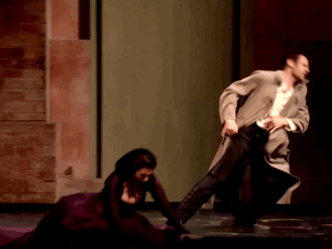
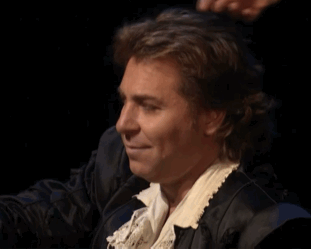
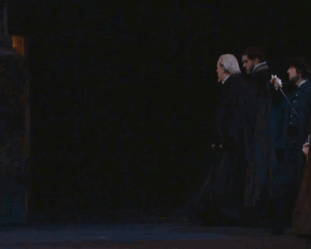
Le Comte Ory (2011): "Moi?" / Agrippina (2020): Nero doing some exercise on stage / La Bohème (2008): respect my modesty!
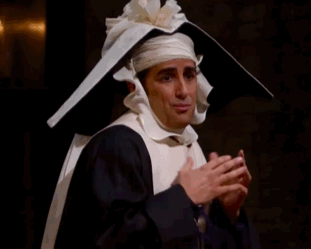
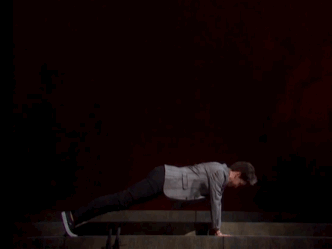

Which opera production was the most visually pleasing to you?
Off the top of my head: Prince Igor (2014), Eugene Onegin (2007), Cendrillon (2018), and Parsifal (2013).
Is there any singer who changed your opinion on an opera character?
I think it'd be Jonas Kaufmann and Werther. I'd not been a big fan of his voice for a long time and the opera was too gloomy for my preference. Then I finally got to watch his Werther last year. The dark tone in Kaufmann's voice actually suits the melancholic mood of Werther and the nuanced acting brings a lot more depth to the character. His rendition of Pourquoi me réveiller is such a powerful depiction of sorrow and despair. By the end of the opera, my perception changed... and I was all tears.
Are there any productions you wish had been filmed but are only available in audio form (or not available at all)?
Remember when the Met decided not to film THIS Boccanegra?
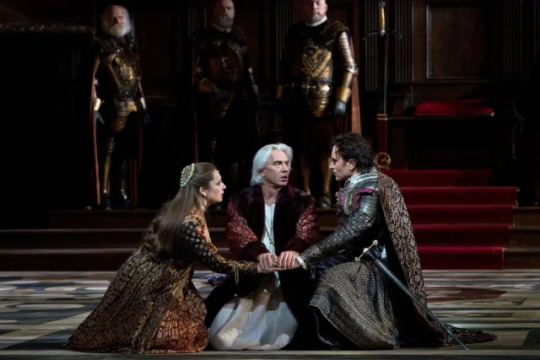
A singer that pleasantly surprised you in a role?
Roberto Alagna in La Rondine and Carmen. I didn't really care for his voice back then, just like Kaufmann's. But his willingness to throw himself into his performance has given me a newfound appreciation of him. This man also only cried real tears on stage.
Any costume(s) that you would want to have? (+pictures if you have them!)
My costume tag really comes in handy for this question :)
Opera characters that are meant for each other and you will not hear otherwise?
Charlotte & Werther, Tosca & Cavaradossi, Tristan & Isolde, Marcello & Musseta, Susanna & Figaro, and Carlo & Rodrigo.
Opera singer that you can’t dissociate from a certain role?
Probably, Radvanovsky's Elizabeth in Devereux. I don't know if there're any still-active sopranos out there that could ever be vocally and histrionically better than her 2016 portrayal.
Opera you think is a complete masterpiece from first to last note? (or an opera that you know by heart?)
Don Carlo(s), Eugene Onegin, La Traviata, La Bohème, Lucia di Lammermoor, Un Ballo in Maschera, Tosca, Il Trovatore, Norma, and Thaïs.
Favorite conductors/conducting moments?
Fabio Luisi goes from 0 to 100 at the beginning of Act 3 of Ballo:
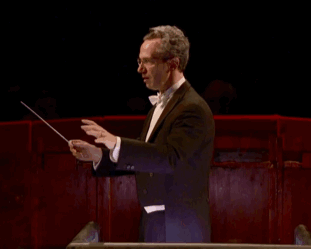
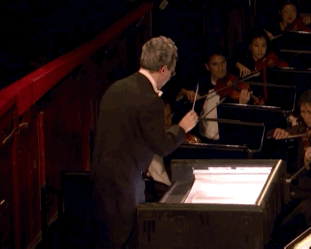
A unique acting choice that you cannot stop thinking about?
2017 Onegin offering Lensky his half-eaten baguette before the duel.
Battle of the productions: for an opera that was streamed in many different productions, which production do you think is the best (or do you like them all equally)?
Eugene Onegin: 2007 >>> 2013 > 2017 La Bohème: 2008 >> 2018 La Traviata: 2012 > 2017 >> 2018 Violetta/Alfredo chemistry: 2017 > 2012 Il Trovatore: 2011 > 2015
Thank you for tagging me, @opera-my-beloved xoxo
13 notes
·
View notes
Text
Music tag game!
RULES. we’re snooping on your playlist. Put your entire music library on shuffle and list the first ten songs and then choose 10 victims.
Thanks for the tag @revedebeatrice 😘
I cheated. I wanted this to be about classical music, so I used my classical music playlist 😇
1. W. A. Mozart: Sancta Maria, mater Dei
2. A. Sullivan: Pirates of Penzance - Stay Frederick, stay
3. G. F. Handel: Giulio Cesare - Da tempeste (Joan Sutherland)
4. W. A. Mozart: Vesperae solemnes de Dominica - Laudate Domino
5. G. Donizetti: Elisabetta al castello di Kennilworth - Per che mi dica ancora (Joan Sutherland)
6. G. F. Handel: Il trionfo del tempo e del disinganno - Un pensiero nemico di pace (Natalie Dessay)
7. G. F. Handel: La resurrezione - Disserratevi o porte d'Averno (Annick Massis)
8. R. Strauss: Arabella - Aber der richtige (Marta Fuchs)
9. G. Donizetti: Lucie de Lammermoor - Souviens-toi qu'en ce domaine (Roberto Alagna)
10. F. J. Haydn: Die Schopfung - Stimmt an die Seite
Tagging: @aletheladyinred @rn7rocks @christhickevans @mrsaugustwalker @amandalove @rmtndew @iloveyouyen
7 notes
·
View notes
Text
The Metropolitan Opera free nightly streams have been and continue to be a source of great joy to me in this time, and, though I'm not going to pretend that the Met isn’t still a deeply conservative institution which doesn’t always treat its employees well, their commitment to keep going with making these accessible through all these long months is generous in a way that I hadn’t expected from them.
It’s been an unexpectedly lovely thing both to get to engage deeply with operas and productions which are new to me, as well as to relive some of my most deeply treasured theatrical experiences, which is a chance we rarely have or get to have in our lives.
In terms of the latter, I am deeply excited about the line up for the next two weeks, which includes both the Iolanta/Bluebeard’s Castle double bill of my heart, a stunning production, even if it does misunderstand the ending of Bluebeard’s Castle (this Tuesday, 6/9!), as well as both of the Phelim McDermott -Philip Glass productions, Akhnaten and Satyagraha (6/19 and 20), which are among my favorite favorite things in all the world. I would feel remiss if there was anyone who would wish to see them and didn’t, so. Here’s your chance.
Some thoughts on the broadcasts I’ve watched so far, as much for my own records as anything -
Bizet’s Carmen (2010), dir Richard Eyre - I have to come to terms with the truth that I don’t actually much care for Carmen, and it turned out that this wasn’t a particularly smart or exciting production of it. Elina Garanca is actually pretty lovely in the title role, but she can’t make the very silly and emotionally incoherent production cohere, and I really disliked Roberto Alagna’s Don Jose.
Donizetti’s Lucia di Lammermoor (2009), dir Mary Zimmerman - I had seen this production before, though earlier and with a different cast; I still think it’s really strong. I am a very committed Mary Zimmerman fan, and I love the way she uses the space to tell the story; her Lucia is actually pretty subdued as far as Zimmerman goes, but it’s very well put together. I like Anna Netrebko, but I don’t think Lucia is her best role; Mariusz Kwiecien does a strong Enrico.
Puccini’s Tosca (2018), dir David McVicar - So beautiful! Seriously the most stunning set, and quite well (though traditionally) staged; I was deeply riveted. The whole cast was strong - Sonya Yoncheva is a young, moving, and persuasive Tosca, Vittorio Grigolo was a very sympathetic Cavaradarossi, and Zeljko Lucic’s Scarpia was extraordinary. Highly recommended.
Offenbach’s Les Contes d’Hoffman (2009), dir Bartlett Sher - I saw this production when it was new and remembered not loving it, but gave it another chance; it turned out it was even worse than I remembered it. I don’t think Sher understands the text at all or the delicate dance between parody and the uncanny that it’s trying to do; I think the whole production is incoherent and tonally off. The cast is largely mediocre (though I can’t blame them, with the direction), but Netrebko does a lovely Antonia (I expect Sher didn’t really touch her performance). Also, the Antonia act has to come third and I will not budge on this.
Verdi’s La Traviata (2012), dir. Willy Decker - I love Natalie Dessay so much! So much! Also, it’s a tremendously smart production, even though I wouldn’t be really interested in any singer other than Dessay trying to make the physicality of that staging work. This is all unfortunately marred, however, by the fact that her costars, Matthew Polezani and Dmitri Hvrostovsky, are distinctly lackluster.
Verdi’s Aida (1985), dir. Bruce Donnelly - This was Leontyne Price’s farewell performance at the Met, and it is totally stunning and nothing else matters. It’s all pretty badly staged, and none of the other singers on the stage can hold a candle to Ms. Price, but I don’t care. She is utterly extraordinary. There’s also some very interesting choreography.
Strauss’ Ariadne auf Naxos (1988), dir. Bodo Igesz - I got a little distracted in this one just continuing to try to feel out what I think of the opera itself, which I have always been conflicted by; I find it at times intensely hilarious, but don’t actually think it fully works. I came to the conclusion that you could fix the whole thing by having Zerbinetta also play Bacchus. Consequently, I wasn’t thinking too much about this particular production, which is entirely serviceable, and had lovely performances by Tatyana Troyanos as the Composer, Jessye Norman as Ariadne, and Kathleen Battle as Zerbinetta.
Puccini’s La Boheme (1977), dir. Fabrizio Melano - It turns out that I really hate La Boheme! Actually! So I didn’t make it all the way through this. I got far enough to learn that I actually don’t find Pavarotti that impressive, but Renata Scotto is a different matter and I don’t know why I didn’t know about her before.
Bellini’s La Somnambula (2009), dir. Mary Zimmerman - I saw this production before, and I loved it then and I love it now. It’s Zimmerman and Dessay and it’s brilliant and daring and perfect and I will never again think of this opera any other way.
#turns out that my opera opinions trend way towards the hip and edgy#only part of my life this is true in#opera#performance
12 notes
·
View notes
Photo


I cackle every time I watch this bit: she’s grateful enough to take the seat, but sassy enough to make a show of adjusting it before she does.
I love her. so. much.
#Elizabetta di Valois#Don Carlo#Don Carlos#Marina Poplavskaya#Roberto Alagna#met opera streams#opera#opera tag#opera gifs#monotonous-minutia gifs#carlos gifs
6 notes
·
View notes
Link
Last week, just about every major museum and cultural institution in NYC announced that it would temporarily close to try to limit the spread of coronavirus. That included the Metropolitan Opera, who said that all performances have been canceled through at least March 31st. Now, these places are starting to think about ways to adapt to our radically different cultural landscape—and the Met Opera will begin streaming encore presentations from their award-winning Live in HD series on the company website for the duration of the closure.
All “Nightly Met Opera Streams” will begin at 7:30 p.m. and will remain available via the homepage of metopera.org for 20 hours.
“We’d like to provide some grand opera solace to opera lovers in these extraordinarily difficult times,” said Met General Manager Peter Gelb. “Every night, we’ll be offering a different complete operatic gem from our collection of HD presentations from the past 14 years.” Lincoln Center has suspended all public performances and screenings through the month of March, as well.
Here's the schedule for this week:
Monday, March 16 – Bizet’s Carmen (Conducted by Yannick Nézet-Séguin, starring Elīna Garanča and Roberto Alagna. Transmitted live on January 16, 2010.)
Tuesday, March 17 – Puccini’s La Bohème (Conducted by Nicola Luisotti, starring Angela Gheorghiu and Ramón Vargas. Transmitted live on April 5, 2008.)
Wednesday, March 18 – Verdi’s Il Trovatore (Conducted by Marco Armiliato, starring Anna Netrebko, Dolora Zajick, Yonghoon Lee, and Dmitri Hvorostovsky. Transmitted live on October 3, 2015.)
Thursday, March 19 – Verdi’s La Traviata (Conducted by Yannick Nézet-Séguin, starring Diana Damrau, Juan Diego Flórez, and Quinn Kelsey. Transmitted live on December 15, 2018.)
Friday, March 20 – Donizetti’s La Fille du Régiment (Conducted by Marco Armiliato, starring Natalie Dessay and Juan Diego Flórez. Transmitted live on April 26, 2008.)
Saturday, March 21 – Donizetti’s Lucia di Lammermoor (Conducted by Marco Armiliato, starring Anna Netrebko, Piotr Beczała, and Mariusz Kwiecien. Transmitted live on February 7, 2009.)
Sunday, March 22 – Tchaikovsky’s Eugene Onegin (Conducted by Valery Gergiev, starring Renée Fleming, Ramón Vargas, and Dmitri Hvorostovsky. Transmitted live on February 24, 2007.)
The 92Y, which has also temporarily suspended all of its events, is livestreaming for free two classical musical concerts originally scheduled for this week. Garrick Ohlsson performed a solo recital, without an audience, on Saturday which you can rewatch anytime. And on March 18th at 7:30 p.m., 92Y will livestream a recital, also without an audience, by mezzo-soprano Fleur Barron, accompanied by a pianist to be announced, performing Mahler and Beethoven. They also plan to have livestreams of other upcoming concerts and lectures, including "pianist Jonathan Biss performing Beethoven’s final three piano sonatas, and lectures on world politics and the global drama of 2020 with renowned foreign affairs scholar Professor Ralph Buultjens."
23 notes
·
View notes
Text
Incontro on line di martedì 15 dicembre 2020 di alcuni allievi della scuola di Scaramuccia
Presenti: Anna Banho, Gianfranco Myōhon, Mario Soshin, Massimo Shido, Paolo Dōchū, Paolo Shōju, Piero Zenka, Roberto Anshin, Roberto Enkei, Salvatore Kaizan.
Nelle scorse settimane, su sollecitazione di Mario Soshin, si è convenuto di vedersi on line per parlare della scuola di Scaramuccia e di come far crescere la comunità attraverso lo scambio e il dialogo.
Mario Soshin ci ha fatto avere, tramite email, una serie di considerazioni e di punti su cui parlare. Riporto, tra questi, i seguenti titoli:
L’esperienza della meditazione insieme, ma ognuno da casa propria.
La posizione espressa dal maestro Taino sul suo futuro ritiro.
Lo stato del forum
Ci si è trovati quindi, potendosi guardare in faccia, da Torino, Alagna, centro della Francia, Firenze, Treviso, Reggio Emilia, Roma e Napoli. Impressionante a pensarci.
Ci sono state subito delle considerazioni sul come siano state scelte queste dieci persone e sulla predominanza maschile quando, anche nell'ultima sesshin a Scaramuccia le donne erano quasi la metà. Si sottolinea che era importante partire e che si sarebbe allargata la partecipazione a chiunque della scuola sarà interessato.
Da parte di tutti si è sottolineato la necessità di fare rete, di avviare luoghi di scambio e crescita. Quindi, oltre al forum che è poco frequentato e vissuto, si è valutato positivamente il fatto di utilizzare piattaforme online per degli incontri che possono avere temi diversi, da aspetti dottrinali, a temi odierni sul sociale e l'ecologia. Incontri in cui sia favorito il confronto e lo scambio di idee e esperienze.
Gianfranco Myōhon diceva del passaggio cui ci troviamo davanti, passaggio avvenuto tante volte nella storia umana. Ovvero quando la comunità di Scaramuccia dovrà misurarsi col passaggio dalla personalità carismatica del fondatore, del maestro Taino, con quello che avverrà dopo. Quale sarà l'istituzione, forse un po' destrutturata, che dovrà assumere Scaramuccia.
Un altro tema era quello delle energie e volontà da mettere in gioco. Per molte persone la pratica e l'impegno sono focalizzate sulla sesshin a Scaramuccia. Per altri invece è da coltivare il tema dell'apertura e del confronto.
Per quanto riguarda il forum c'è chi lo accetta così com'è e chi vorrebbe una maggiore apertura e partecipazione. Forse, dico io come gestore del forum degli ultimi nove anni, sarebbe necessario il cambio del moderatore e della linea editoriale.
Ci si domanda anche della rappresentatività dei centri di città. Quali sono effettivamente attivi, con incontri regolari. Vorremmo riuscire a fare una ricognizione sul loro stato.
Per quanto riguarda la meditazione a distanza, iniziata lo scorso 1 maggio con junkei tenuto dal maestro Taino, vedrà l'ultimo incontro di questo primo giro venerdì 8 gennaio 2021, anche in questo caso il maestro Taino terrà junkei. In mezzo ci sono stati ventinove sedute in cui i diversi maestri del Dharma, che hanno scelto di partecipare, hanno tenuto junkei.
Per capire se e come andare avanti in questa esperienza a distanza verrà raccolto un questionario tra tutti i partecipanti. I risultati saranno poi discussi in un incontro online, aperto a tutti, che verrà tenuto a metà gennaio.
L'idea è quella di proporre un incontro mensile on line per vederci e parlarci.
Paolo Shōju
1 note
·
View note